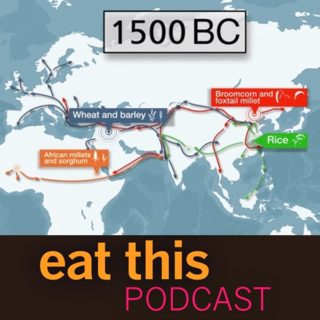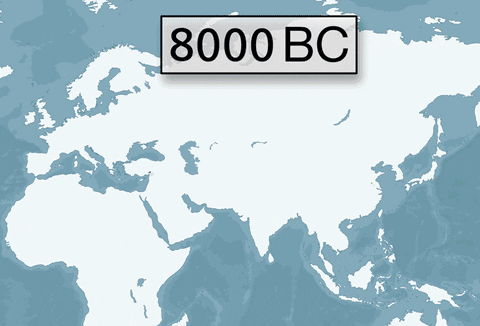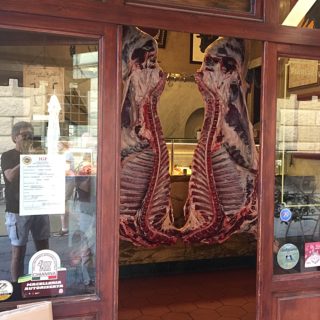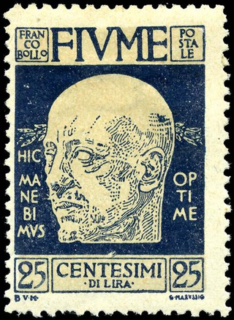- A “chewable vegetable-shaped baby toy which stimulates baby’s senses and soothes teething gums while introducing them into a healthy lifestyle from a young age”.
- More abundant wheat resulted in the creation of new street foods in India.
- Fish with a Marine Stewardship Council (MSC) label is much less likely to be mislabelled than fish not so adorned.
- The USDA’s Agricultural Research Service has released a report on the resources beef cattle in the US use and their contribution to greenhouse gasses.
- Italian scientists have come out against a proposal to promote organic farming and food.
- Chickens indicate when the much-vaunted Anthropocene Age truly began.
- So you fancy opening a restaurant? Don’t.
Prehistoric food globalisation 0h, East is East, and West is West ... Or maybe not
Podcast: Play in new window | Download (Duration: 20:58 — 16.9MB)
Subscribe: Google Podcasts | Spotify | Android | RSS | More
 For a while, archaeologists treated the origins of agriculture – where it began, how it spread – as a minor element in the grand sweep of human history. That started to change with new techniques that could identify preserved plant remains, especially cereal seeds, in the detritus of archaeological digs. Then came the ability to tell what people had been eating by looking at the chemicals in their bones. And every day new discoveries in genetics add yet more details.
For a while, archaeologists treated the origins of agriculture – where it began, how it spread – as a minor element in the grand sweep of human history. That started to change with new techniques that could identify preserved plant remains, especially cereal seeds, in the detritus of archaeological digs. Then came the ability to tell what people had been eating by looking at the chemicals in their bones. And every day new discoveries in genetics add yet more details.
Martin Jones, Pitt Rivers professor of Archaeology at the University of Cambridge, has spent his entire working life studying the archaeology of crops. With some colleagues, he has now published a paper that offers a more detailed, and more nuanced story of agriculture. Crops were moving much further much earlier, and as they did so early farmers grew the confidence, the resources and the knowledge to move up into the mountains and down into the river basins. Far from being a minor element in archaeology, the journeys of the first farmers and their crops established the routes along which the rest of human development travelled.

Notes
- The paper, From ecological opportunism to multi-cropping: Mapping food globalisation in prehistory, is behind a paywall, but there is a very good press release.
- That press release is also the source of the animation, which illustrates how four of the ancient world’s most important domesticated grain crops spread across the Old World between 7,000 and 3,500 years ago, by Javier Ventura, Washington University.
- The banner photograph I built from Tilling Rice, after Lou Shou, a scroll in the Freer/Sackler Museum. OK, so it’s late 13th century, long after the period we are talking about, but there isn’t any contemporaneous imagery as far as I’m aware and in any case it is charming. Go look.
Eat This Newsletter 095
- Culinary Backstreets
- Historians rethink the Green Revolution
- The Surprising Benefits of Serving Prisoners Better Food. (Shameless plug: the episode last summer about Food in prison.)
- Review: Authentic Italian. The Real Story of Italy’s Food and Its People
- Taking Stock of UK Dairy Farming in 2019
- STUFFED (32) – Laying it on Thick. (See also Peanut butter powder & jelly noodles.)
For my thoughts on these links, sign up for Eat This Newsletter.
We need to talk about meat Good or bad, right or wrong, now or never

Podcast: Play in new window | Download (Duration: 27:08 — 21.9MB)
Subscribe: Google Podcasts | Spotify | Android | RSS | More

Meat is once again a central topic in nutrition, sustainability, health and capitalism. Points pro and con fly back and forth with no resolution in sight, not surprising given the doctrinaire nature of the discussion. I know where I personally stand, but I also want to try and understand why it is that people feel so much more strongly about meat than about any other element of the diet. That’s why I was very glad to meet Francesco Buscemi last year, and to persuade him to talk to me about his research on the many meanings of meat.
Some chicken …
Francesco’s aside about Winston Churchill was sufficiently intriguing to send me searching. What Churchill wrote was
We shall escape the absurdity of growing a whole chicken in order to eat the breast or wing, by growing these parts separately under a suitable medium.
The quotation is apparently well-loved by anti-meat campaigners, but was unknown to me. It appears in an essay called Fifty years hence that was published first in Maclean’s magazine in November 1931 and then in many other places, with minor edits. The version easiest to find online is in Popular Mechanics a few months later, somewhat more adventurous in some of its predictions. The chicken quote precedes other prognostications on the same subject.
Synthetic food will, of course, also be used in the future. Nor need the pleasures of the table be banished. That gloomy Utopia of tabloid meals need never be invaded. The new foods will be practically indistinguishable from the natural products from the outset, and any changes will be so gradual as to escape observation.
Tabloid, here, is used in the sense of a small, concentrated dose, and I’m surprised it isn’t capitalised, being a brand name trade-marked by the Burroughs & Wellcome drug company. Would Winston have embraced a meat-free vegan chicken drumstick? Are the new foods “indistinguishable”? I have my doubts, but what’s an out of work jobbing journalist to do?

The Adriatic question
 Aside from Churchill, the other fascinating byway down which Francesco’s book beckoned me was the Regency of Fiume, established by the poet Gabriele d’Annunzio in 1920. You can find a fair bit of information in Wikipedia and elsewhere. I haven’t explored all that much, but it does seem that d’Annunzio created a forerunner of facism and hippy communes.
Aside from Churchill, the other fascinating byway down which Francesco’s book beckoned me was the Regency of Fiume, established by the poet Gabriele d’Annunzio in 1920. You can find a fair bit of information in Wikipedia and elsewhere. I haven’t explored all that much, but it does seem that d’Annunzio created a forerunner of facism and hippy communes.
The Writer, Seducer, Aviator, Proto-Fascist, Megalomaniac Prince Who Shaped Modern Italy is great fun and gives some of the flavour of the man.
Notes
- Francesco Buscemi’s book From Body Fuel to Universal Poison: Cultural History of Meat: 1900-The Present is available through Amazon.
- Personally, I’m avoiding all discussion of the comparative merits of different forms of non-meat. There’s just too much uncertainty about almost all of the assumptions.
- Reducetarianism really is a thing. What kind of thing, I couldn’t possibly say.
- Postage stamp of d’Annunzio scanned by Stan Shebs, Public Domain.
- Other photos by me.
A tragedy foretold
I’ve more or less given up on the story of Xylella in Italy. It is just too distressing. But I continue to follow the news as best as I can, which today brought a post containing this little nugget:
Three thousand eradicated trees, as foreseen by Silletti’s plan, would have represented a drop in the ocean, a small price to pay – however painful it might have been – to avoid a catastrophe.
Three thousand, or about four million? You do the math. Self-serving, anti-scientific, rabble-rousing cretins look on course to destroying the economy of the region.

